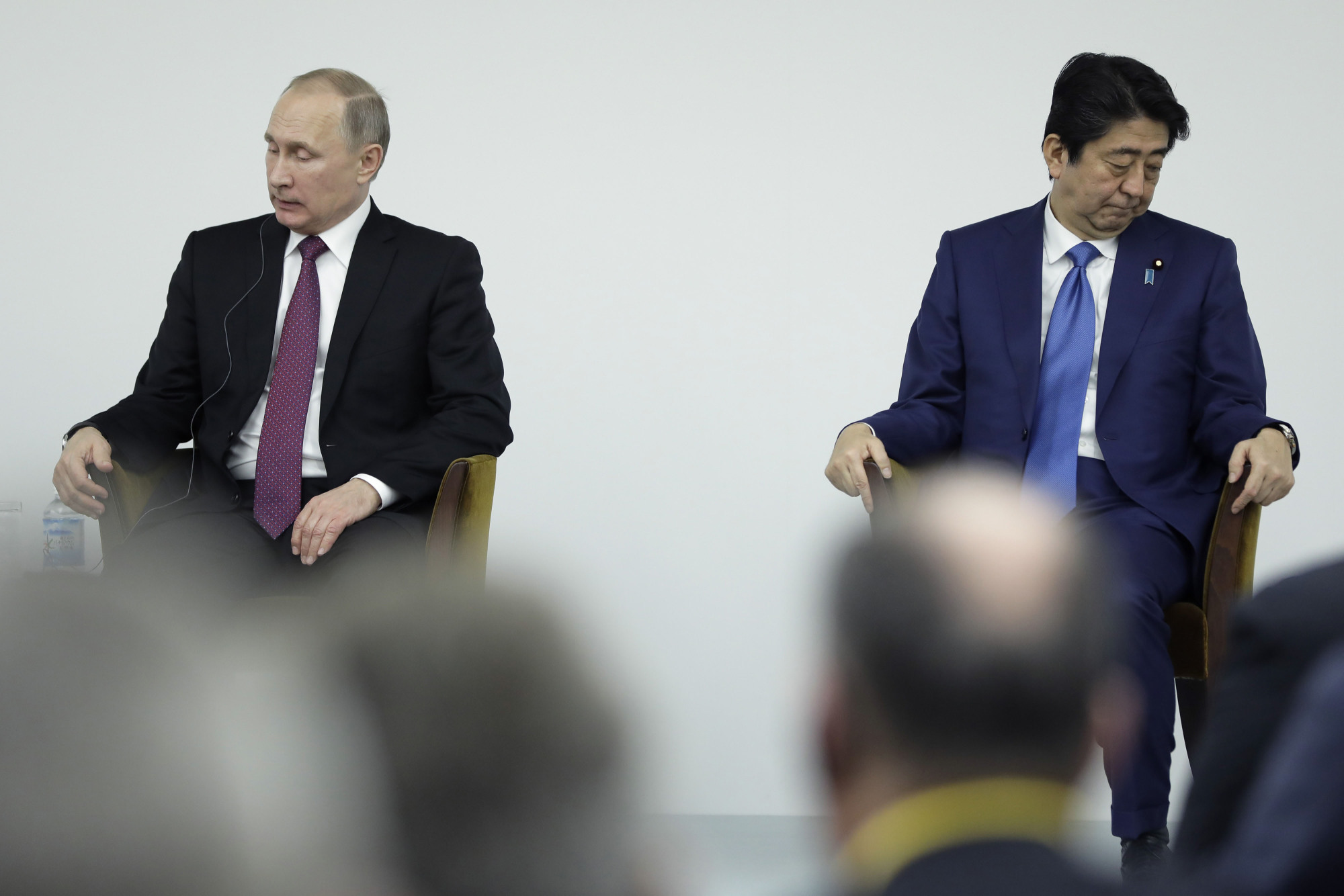In the past month, Prime Minister Shinzo Abe has snuggled up to two of the world's most distrusted national leaders in an attempt to prove his diplomatic mettle and boost support rates ahead of a rumored snap election next year. Abe was the first country head to gain an audience with President-elect Donald Trump in a meeting whose kitschy setting, prematurity and air of pointlessness highlighted Abe's desperation. Then, last week, he welcomed Russian President Vladimir Putin to a hot-spring resort in his home constituency of Yamaguchi Prefecture, thus raising eyebrows in various foreign capitals. Last summer, when Abe hosted the annual summit of leaders of the industrialized world, it was with the G-7, not G-8, because the others had decided to uninvite Putin due to his actions in Ukraine and Syria.
Abe is not being a maverick. There were specific national interests tied to these meetings. The confab with Putin was presented as a concerted attempt to get the four islands the Soviets seized at the end of World War II — the so-called Northern Territories — returned to Japan. It didn't work out that way at all.
In fact, it was never going to work out that way, and anyone with any knowledge of the issue knew that, but the Japanese media persuaded the public that there was some possibility Putin could be bent toward Japan's will, even if that only meant the return of two islands. This concession also wasn't going to happen. The summit has been called a bust, but the fact that it effectively destroyed the government-sanctioned verities related to the Northern Territories counts as the only progress the matter has seen in 70 years.


















With your current subscription plan you can comment on stories. However, before writing your first comment, please create a display name in the Profile section of your subscriber account page.